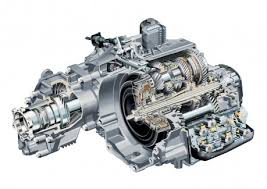Mobile:+86-311-808-126-83
Email:info@ydcastings.com
neoprene impeller
Understanding Neoprene Impellers Versatility and Applications
Neoprene impellers have become increasingly popular in various industrial and engineering applications due to their unique properties and advantages. Neoprene, a type of synthetic rubber, is known for its excellent resistance to abrasion, oil, and water, making it an ideal material for components that must withstand harsh environments. The use of neoprene in the manufacturing of impellers has revolutionized several industries, particularly in pumping systems and fluid handling.
One of the most notable features of neoprene impellers is their durability. Unlike traditional metal or plastic impellers, neoprene impellers can operate effectively in conditions where exposure to chemicals and abrasives is inevitable. They resist wear and tear, allowing for longer lifespans and reducing the frequency of replacements. This durability translates to lower maintenance costs, making neoprene impellers a cost-effective choice over time.
Neoprene impellers are also lightweight compared to their metal counterparts, which contributes to their versatility. Their light weight allows for easier installation and less strain on the motor and overall system. This characteristic is particularly beneficial in portable and compact pumping systems where weight restrictions are a concern. Additionally, the flexible nature of neoprene allows these impellers to absorb shock and vibrations, contributing to smoother operation and less noise during pumping.
neoprene impeller

The adaptability of neoprene extends beyond just physical properties; it is also highly customizable. Neoprene can be formulated to achieve specific characteristics, such as flexibility, hardness, and resistance to particular chemicals. This means that neoprene impellers can be engineered to meet the precise requirements of different applications, whether it be in wastewater treatment, chemical processing, or aquaculture. This customization capability has made neoprene impellers a popular choice across various sectors.
In the field of marine applications, neoprene impellers play a crucial role in pumps used for boats and ships. These impellers are resistant to saltwater, corrosion, and other environmental factors, ensuring reliable performance over time. Similarly, in agricultural settings, neoprene impellers are employed in irrigation systems. Their capacity to handle water with various levels of sediment and debris makes neoprene impellers a practical choice for farmers who rely on effective water management.
Another significant advantage of neoprene impellers is their environmental friendliness. Being a synthetic material, neoprene is designed to be recyclable, which aligns with the growing demand for sustainable practices in manufacturing. By opting for neoprene impellers, industries can reduce their ecological footprint while still maintaining high-performance standards.
In summary, neoprene impellers embody a blend of durability, versatility, and cost-effectiveness that is hard to match in the realm of fluid handling systems. Their resistance to chemicals, lightweight design, customization options, and eco-friendliness make them an invaluable asset in various applications ranging from industrial pumping to marine and agricultural use. As industries continue to seek innovative solutions for their pumping needs, neoprene impellers will likely remain at the forefront, demonstrating their exceptional capabilities in a variety of demanding environments. The future of impeller technology is undoubtedly bright, driven by the unique characteristics of materials like neoprene.
-
Why Should You Invest in Superior Pump Castings for Your Equipment?NewsJun.09,2025
-
Unlock Performance Potential with Stainless Impellers and Aluminum End CapsNewsJun.09,2025
-
Revolutionize Your Machinery with Superior Cast Iron and Aluminum ComponentsNewsJun.09,2025
-
Revolutionize Fluid Dynamics with Premium Pump ComponentsNewsJun.09,2025
-
Optimizing Industrial Systems with Essential Valve ComponentsNewsJun.09,2025
-
Elevate Grid Efficiency with High-Precision Power CastingsNewsJun.09,2025











